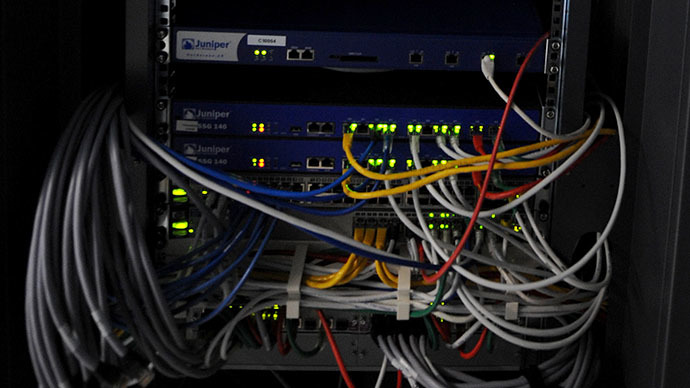New Snowden leak: NSA is monitoring the Internet histories of millions of Americans

The National Security Agency is collecting information on the Internet habits of millions of innocent Americans never suspected of criminal involvement, new NSA documents leaked by former intelligence contractor Edward Snowden suggest.
Britain’s Guardian newspaper reported Monday that top-secret documents included in the trove of files supplied by the NSA contractor-turned-leaker Edward Snowden reveal that the US intelligence community obtains and keeps information on American citizens accumulated off the Internet without ever issuing a search warrant or opening an investigation into that person.
The information is obtained using a program codenamed Marina, the documents suggest, and is kept by the government for up to a full year without investigators ever having to explain why the subject is being surveilled.
“Marina has the ability to look back on the last 365 days' worth of DNI metadata seen by the Sigint collection system, regardless whether or not it was tasked for collection,” the Guardian’s James Ball quotes from the documents.
According to a guide for intelligence analysts supplied by Mr. Snowden, “The Marina metadata application tracks a user's browser experience, gathers contact information/content and develops summaries of target.”
"This tool offers the ability to export the data in a variety of formats, as well as create various charts to assist in pattern-of-life development,” it continues.
Ball writes that the program collects “almost anything” a Web user does online, “from browsing history – such as map searches and websites visited – to account details, email activity, and even some account passwords.”
Only days earlier, separate disclosures attributed to Snowden revealed that the NSA was using a massive collection of metadata to create complex graphs of social connections for foreign intelligence purposes, although that program had pulled in intelligence about Americans as well.
After the New York Times broke news of that program, a NSA spokesperson said that “All data queries must include a foreign intelligence justification, period.” As Snowden documents continue to surface, however, it’s becoming clear that personal information pertaining to millions of US citizens is routinely raked in by the NSA and other agencies as the intelligence community collects as much data as possible.
In June, a top-secret document also attributed to Mr. Snowden revealed that the NSA was collecting the telephony metadata for millions of Americans from their telecom providers. The government has defended this practice by saying that the metadata — rough information that does not include the content of communications — is not protected by the US Constitution’s prohibition against unlawful search and seizure.
“Metadata can be very revealing,” George Washington University law professor Orin S. Kerr told the Times this week. “Knowing things like the number someone just dialed or the location of the person’s cellphone is going to allow them to assemble a picture of what someone is up to. It’s the digital equivalent of tailing a suspect.”
According to the Guardian’s Ball, Internet metadata picked up by the NSA is routed to the Marina database, which is kept separate from the servers where telephony metadata is stored.
Only moments after the Guardian wrote of its latest leak on Monday, Jesselyn Radack of the Government Accountability Project read a statement before the European Parliament’s Committee on Civil Liberties, Justice and Home Affairs penned by none other than Snowden himself.
“When I began my work, it was with the sole intention of making possible the debate we see occurring here in this body,” Snowden said.
Snowden, who has been granted temporary asylum in Russia after being charged with espionage in the US, said through Raddack that “The cost for one in my position of returning public knowledge to public hands has been persecution and exile.”
Snowden: When I began my work, it was w/ the sole intention of making possible the debate we see occurring here in this body. #EPinquiry
— Gov Acct Proj (@GovAcctProj) September 30, 2013
Snowden: The cost for one in my position of returning public knowledge to public hands has been persecution & exile. #EPinquiry
— Gov Acct Proj (@GovAcctProj) September 30, 2013
Meanwhile, at the White House Monday afternoon, NBC News correspondent Chuck Todd asked Obama press secretary Jay Carney to comment on the latest disclosures, but to no avail.
“The NSA’s activities are directed against foreign intelligence targets in order to protect the nation and its interests,” said Carney, adding, “We do what other nations do, and that is collect foreign intelligence.”
When Todd responded, “This is about Americans; this is about Americans, that are not foreign,” Carney replied by refusing to acknowledge any specific intelligence tool and instead said that the agency’s foreign intelligence activities “are directed pursuant to procedures approved by the United States attorney general and secretary of defense.”
“I understand that that’s what you have to say. And that’s a statement you have to say. But are you at all concerned?” asked Todd.














